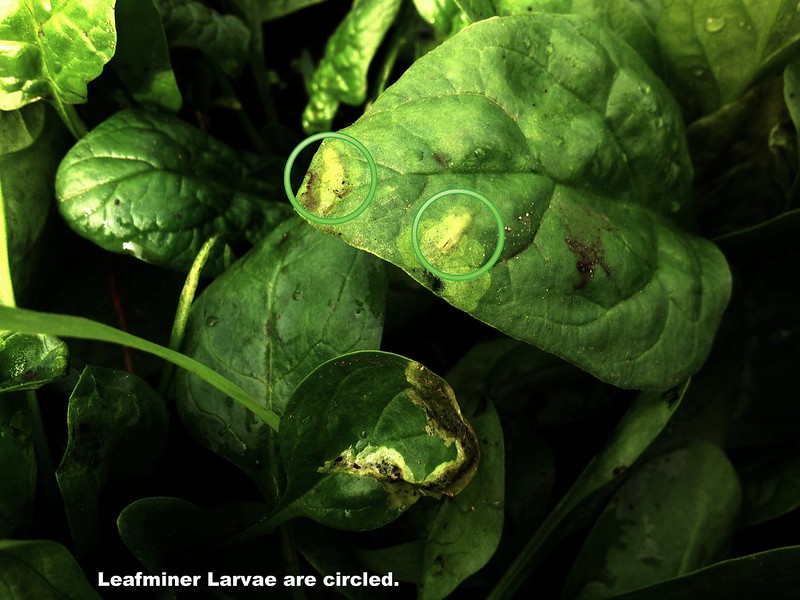Despite my at times impossibly mickey mouse tone [‘hey guys! gee, isn’t farming fun?!’], sometimes bad things do happen. Yesterday we noticed that we have a Spinach Leafminer infestation in our spinach.

The leafminer is a small fly that lays its eggs on the under side of plants. The eggs hatch, and the larvae chew their way into the leaves, then back out of the leaves (hence the name leafminer). They then drop to the ground and continue to develop; two weeks later (give or take), they reemerge as adult flies, ready to begin the cycle anew. There’s about three and a half generations per season, with one generation overwintering in the soil. It seems that spinach leafminers love lambsquarter and chickweed, two of our major weed-problems, so this infestation at least makes sense. (All of this information came from a very informative info sheet from Cornell, available here.)
So today Abby and I spent the first chunk of our morning picking the infected leaves off of our first crop of spinach. The good news is that the chickens were ecstatic to have a bunch of little grubs to pick at all day, and I’m always happy to make the chickens happy. It looks like we’ve got many more hours of leaf picking ahead of us, so I’ll just bear those happy hens in mind.
Unfortunately this infestation requires chemical intervention, so we’ll be treating with Spinosad. Spinosad is an Organically approved insecticide derived from the bacteria S. Spinosa. Obviously, we’re not super jazzed about chemical treatments, even organically approved ones, but it seems that this situation necessitates it. We looked at introducing natural predators, specifically parasitic wasps, but the cost to efficacy ratio was not favorable in this situation. Hopefully, as we reduce the weed burden on this land, and continue to plant diverse crops and practice prudent crop rotation, the population of this insect will reach manageable levels.
